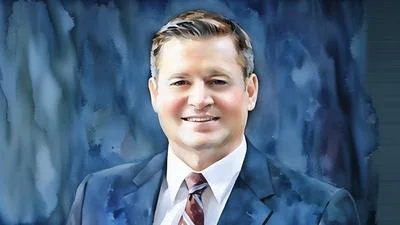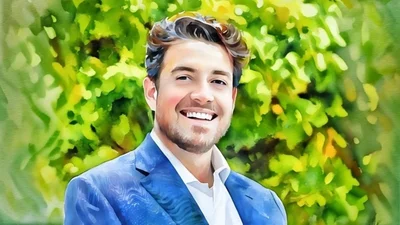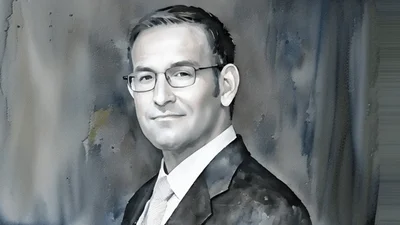Karen Cook’s Battle at the Supreme Court: A Turning Point in SEC Enforcement
In a U.S. Supreme Court case that could reshape regulatory enforcement, Karen Cook, an attorney specializing in securities law, convinced the court that the Securities and Exchange Commission’s (SEC) approach to handling enforcement cases requires changes to make the process more fair for its targets.
Cook represented George Jarkesy in Jarkesy v. Securities and Exchange Commission. The Supreme Court's ruling in the case on May 18, 2023 is seen by many as a pivotal moment in reining in what she describes as the SEC’s "home field advantage" in its internal courts.
The Role of the SEC and Its Expanding Authority
Cook, who previously served as assistant director of enforcement at the SEC, believes in the agency's role in maintaining fair and transparent markets. "Full disclosure is a concept that underlies the federal securities law. If you give people full disclosure, they can make good decisions on investments," Cook told Federal Newswire in her interview on the Lunch House podcast.
However, Cook also expressed concern over the SEC’s increasing tendency to leverage its in-house courts to secure settlements from those it accuses of violating securities laws. According to Cook, the practice has tipped the scales too far in favor of the agency, depriving defendants of a fair chance to defend themselves.
"Given more and more enforcement power, they were diverting so many of their cases to the home field advantage," Cook said. "They were able to leverage settlements because people knew you can't win."
The "home field advantage" refers to the SEC’s practice of using its own administrative law judges (ALJs) to adjudicate cases. Critics argue that the judges, who are employed by the SEC, may not be as impartial as those in federal courts. Cook’s case challenged the practice, arguing that it undermines the due process rights of defendants.
The Case of George Jarkesy and the Fight Against Unfair Practices
George Jarkesy, the client whose case Cook brought before the Supreme Court, had been embroiled in a protracted legal battle with the SEC for six years before his case reached her firm. Jarkesy’s experience epitomizes the difficulties faced by many who find themselves on the wrong side of the SEC’s enforcement actions. "The first thing we did when we realized we were just walking into a certain loss...we began looking at the Constitution," Cook said.
Cook and her team initially sought to stop the administrative proceeding by filing a lawsuit in the D.C. District Court. However, they were told they had to complete the entire case before they could raise their constitutional issues.
"We then went back and went through the trial and after the SEC had taken two years to investigate Mr. Jarkesy and his businesses, we had then just a few months to prepare our defense to it," Cook explained. The rush to trial and the subsequent decision by the SEC's ALJ left little doubt in Cook's mind that the process was skewed against her client.
The administrative process was not only lengthy but also, in Cook's view, unfair. The relationship between the SEC’s enforcement staff and its ALJs raised questions about impartiality.
"During the hearing, the administrative law judge was summarizing our arguments and said something like, ‘the defendant doesn't think we've done enough.’ I thought, ‘well, I don't know who he means, but it's got to mean the ALJ and the Division of Enforcement, right?’ We knew we were in trouble then," Cook recalled.
A Historic Argument Before the Supreme Court
Cook's and her partner, Mike McCulloch, presented their case before the Supreme Court Justices. "To literally be in front of all nine of them was really an amazing experience," she said.
The case presented three issues, though the court ultimately focused on one: the right to a jury trial under the Seventh Amendment. The length of the argument—one of the longest of the term—underscored the importance and complexity of the issues.
Cook noted that Chief Justice John Roberts, who authored the majority opinion, and the other conservative-appointed justices, asked insightful questions that suggested they were sympathetic to their arguments. Cook also highlighted an intense exchange between Justice Elena Kagan, a noted expert on administrative law, and McCulloch. "I think Justice Kagan was trying to make the point, ‘hey, this has been settled law for 50 or 60 years,’" Cook said, acknowledging the difficulty of challenging long-standing precedents.
The Supreme Court's ruling in favor of Jarkesy on three issues was a significant victory for Cook and her team. The court's decision underscored the importance of ensuring that defendants in SEC enforcement actions are afforded constitutional protections.
"The right to a jury trial applies here and even went so far as to say you're entitled to an Article III court," Cook emphasized. The ruling also served as a rebuke to the SEC’s use of its administrative courts, which Cook and others argue have been used to bypass the safeguards of the federal court system.
Restoring Balance and Protecting Individual Rights
The Supreme Court’s decision in the Jarkesy case was a win for Cook and her client, and a significant step in restoring the balance of power between federal agencies and the individuals and businesses they regulate.
"The separation of powers between these three branches of government is very important to protecting individual liberty," Cook said. She believes that the court’s ruling will help ensure that when individuals or businesses are brought into legal disputes with the federal government, they will face a fairer process, complete with all the protections guaranteed by the U.S. Constitution.
Cook’s experience with the Jarkesy case has strengthened her resolve to litigate for fairness and due process in the legal system. Asked if she will take on similar challenges in the future, “Absolutely,” she said.
"As we walked down the steps that day, we looked at each other and said, ‘let's go do that again.’"








